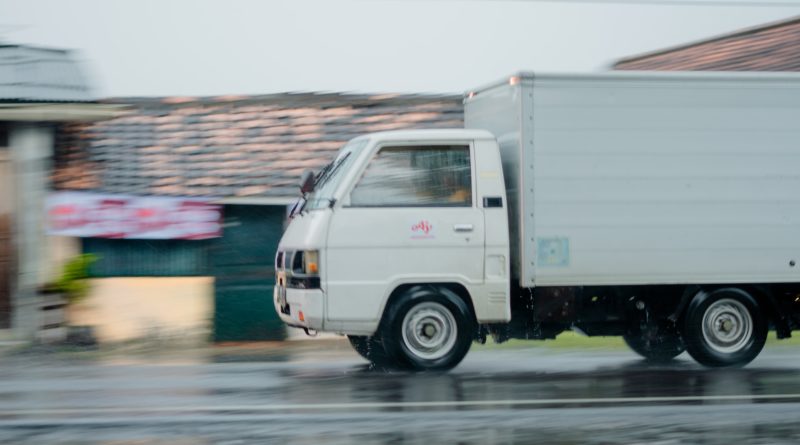Waste Carriers Licence: How to Get a Rubbish Clearance Licence
Operating a rubbish clearance business is a serious job and an integral part of a functional and environmentally friendly society, but to do so legally in the UK, you need to obtain a rubbish clearance license, also known as a waste carrier’s license. In this article, we’ll guide you through the process of getting your license and understanding the various legal responsibilities involved.
Understanding the Need for a Rubbish Clearance License
The legal framework in the UK mandates anyone transporting waste as part of their business to hold a valid waste carrier’s license. This regulation, enforced by the Environment Agency in England, and equivalent bodies in Scotland, Wales, and Northern Ireland, is designed to reduce illegal waste carrier activity and promote a more sustainable waste management system.
Types of Waste Carrier’s Licenses
There are two main types of waste carriers licenses that you can apply for depending on your business activities:
- Lower Tier: This is for businesses that occasionally transport waste or handle waste that they have produced themselves. This license is free and does not need to be renewed.
- Upper Tier: This is for businesses that frequently transport waste or handle other people’s waste. There is a fee associated with this license, and it needs to be renewed every three years.
How to Apply for a Rubbish Clearance Licence
The application process for a waste carrier licence is fairly straightforward and can be completed in person or online through the website of the relevant environmental body.
To apply, you will need:
- Your business information, including your Companies House registration number if you have one.
- The names, dates of birth, and national insurance numbers of all partners, directors, or proprietors.
- Information about any previous environmental offences.
Once you have gathered all the necessary information, you can fill out the online form and pay the application fee if you’re applying for an Upper Tier licence. The fee to pay for an Upper Tier licence varies, but as of the time of writing, it is £154 for online applications.
Legal Responsibilities of a Licenced Rubbish Clearance Operator
Obtaining a rubbish clearance licence is just the first step. Once you have your licence, you are required to abide by several legal responsibilities, which include:
- Always storing and transporting waste safely and securely.
- Providing a waste transfer note for every load of waste that leaves your possession.
- Keeping records of all waste you receive or dispose of for at least two years.
- Only handing over waste to businesses that are authorised to receive it.
Dealing with Construction and Demolition Waste
When it comes to construction and demolition (C&D) waste, generated during construction, renovation, or demolition projects, businesses need to adhere to specific UK regulations.
Classifying and Managing C&D Waste
C&D waste, including materials like concrete, bricks, or plasterboard, must be classified according to UK government guidelines. This classification ensures appropriate treatment, recovery, or disposal methods are used and informs waste documentation.
Permit Requirements for C&D Activities
Businesses handling C&D waste must have the relevant environmental permit, either a Standard Rules Permit for low-risk activities or a Bespoke Permit for operations not covered by standard rules.
Responsibilities and Best Practices
Permit holders should segregate waste for recycling, dispose of hazardous waste correctly, use registered waste carriers, and maintain accurate waste records. Non-compliance can lead to severe penalties.
Consequences of Operating Without a Licence
If you want to carry waste without a waste carrier’s license or registration you can suffer severe penalties. Here are some potential outcomes if you are found guilty of not being registered as a waste carrier while transporting waste:
- Fixed Penalty Notice: Local authorities can issue a Fixed Penalty Notice (FPN) for failing to provide proof of a valid waste carrier’s license when transporting waste. The standard fine for a FPN is £300, but it can be reduced if the offender can present a valid license within 10 days of receiving the FPN.
- Court-imposed fines: If you’re prosecuted for operating without a license, you could face an unlimited fine. The severity of the fine will depend on factors such as the type and quantity of waste involved, any harm caused, and whether the offence was deliberate or due to negligence.
- Vehicle seizure: The Environment Agency or local authorities can seize your vehicle if it’s used in illegal waste activities, including transporting waste without a license.
- Cleanup costs: If you’re involved in illegal dumping, you might be held responsible for the costs of cleaning up the waste.
Conclusion
Getting a rubbish clearance licence is a straightforward process, but it is an essential legal requirement for anyone transporting waste as part of their business in the UK. It’s crucial to understand the type of licence you need, the application process, and the details of your legal responsibilities once you have the waste carriers licence. By operating legally and responsibly, you can contribute to a more sustainable and efficient waste management system in the UK.
Frequently Asked Questions
How long does it take to get a waste carrier’s licence?
Once your application and payment have been received, it usually takes a few weeks to process. However, the exact timeline and registration process may vary.
Can I operate nationwide with my waste carrier’s licence?
Yes, a waste carrier’s licence issued by the Environment Agency in England, or the equivalent bodies in Scotland, Wales, and Northern Ireland, is valid across the UK.
Do I need a waste carrier’s licence if I’m transporting my own waste?
If you are transporting your own waste as part of your business activities, you will still need a waste carrier’s licence. In this case, you would typically apply for a lower-tier waste carrier licence first, which is free and does not need to be renewed.

